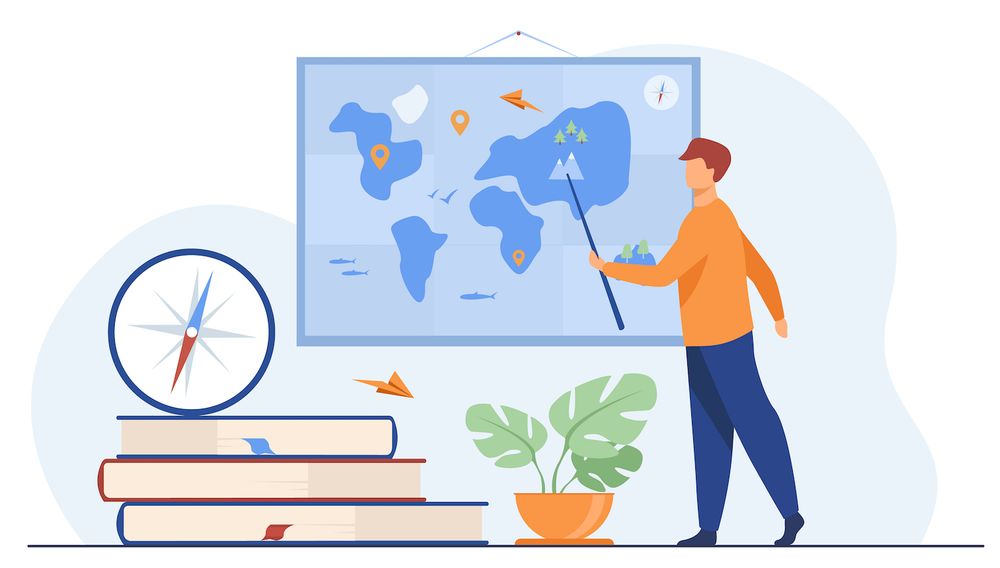Can SaaS Companies Afford to Ignore VAT and Sales Taxes? -
One of the things I've observed while working is how common it is for SaaS and software companies to not pay transaction-related taxes (sales taxes tax, VAT, GST and so on. ).
And I get it.
Sales taxes, VAT, and GST can be confusing, complicated and are not the things software leaders want to spend their time.

But also, you should know that ignoring transaction-related taxes can lead to a risk that goes beyond the payment of some back taxes sometime in the near future.
In one of my discussions with the Global Tax Director of's Rachel Harding, my most experienced and knowledgeable source of have on the subject She told me:
- 40% penalty and interest She's witnessed software companies incur 40% in interest and penalties in the event of ignoring taxes on sales in the state.
- Multi-million dollar valuation adjustments from historical sales tax noncompliance during acquisition due diligence.
Plus many plus.
So to answer the question we asked ourselves: no, you shouldn't ignore taxes on sales, VAT and GST tax.
In this article this article, we discuss five important aspects SaaS businesses need to know concerning taxes. A lot of this information comes from my conversations with Rachel. Below, you will be able to listen to two of our chats to learn more.
5 Factors SaaS Companies Need to Understand Concerning Sales Taxes
1. VAT, Sales and GST Taxes can affect SaaS Valuations
When Rachel worked on a team of mergers and acquisitions tax experts for small software companies she witnessed million-dollar price increases as a consequence of tax evasion.
"If you're looking to have any kind of ownership shift, major or minority investment, investors are going to investigate your company," Rachel explained. "They are going to investigate all the processes, like do you have a handle about where your product is taxable? Are you adhering to these rules in collecting, remitting and paying taxes? Are you compliant? Since if you're not, the buyer will be required to rectify it prior to purchasing it, or they'll just take the purchase price off."
2. If You've Done It Correctly If You Do It Right, You Don't Have to Pay Anything Extra
"If you've done it the right way technically, then it's zero to you." Rachel explained.
The sales tax is a consumptive tax, a tax on the consumer, not your company. It shouldn't be something you're spending money on. But it is up to you to collect sales tax on the customer's behalf -- and remit it to the right department of government. The buyer is responsible, but a seller's obligation.
"It's when you're doing it wrong that it becomes an expense and liabilities in your balance sheet. It's possible, but you're not likely be able to charge a sales tax two years after the tax was due. Therefore, it's completely from your pocket."
3. Consumption Taxes are Calculated Based on the Location of the Buyer, not the Seller.
Sales taxes are complicated (especially in countries like the U.S.), but generally speaking, what's important to know is that sales taxes are paid where the product is realized (aka the location where your client is). The tax isn't calculated based on your location or the place of the headquarters for your business.
The most important data to source sales is the invoice number as well as the computer's IP address. The name suggests that SaaS is taxed the same way as services and not goods and therefore only 20 of 45 U.S. states with sales tax laws actually tax SaaS. And since 2018, if you have the amount of taxable sales in your area that is greater than the threshold, you will be legally considered to be an economic connection (a big shoutout to South Dakota v. Wayfair to explain this idea! ).
A threshold for sales is the quantity of sales that you have in a specific jurisdiction before you have to submit taxes. Every tax area (whether it's a territory, state, territory, or a country-wide at a global level) offers its own method of setting the threshold.
4. The Tax Laws and Regulations have Significantly changed in the last 10 years
Sales taxes, VAT, and other transaction-related taxes have seen a significant change during the past 10 years. Certain changes are more significant than others, and they have altered the tax landscape completely.
2015: EU Tax Collection Requirements from Software companies that are not EU-based.
On January 1, 2015 The EU started requiring software vendors to collect and pay VAT in accordance with the place of the buyer rather than the place of operation for the company's employees or of its headquarters.
The VAT rates are determined by the nation, which means the country is responsible for keeping up with the changes in these rates at an individual level.

2018: U.S. The Senate has voted that states can collect Sales Taxes From Non-Resident Businesses
In the year 2018, the U.S. Supreme Court ruled that states can impose sales tax on purchases by sellers outside of the state (including sellers on the internet) and even when the seller is not located in any physical presence within the taxing state ( South Dakota v. Wayfair, Inc.). (A.k.a. this is the main reason why we write this piece is that non-residents and small businesses need to know about sales tax and its application.)
In the U.S., sales tax regulations differ from state to state. Florida and California are not required to collect of sales taxes on SaaS subscriptions. But New York and Pennsylvania do.
Then, in 2020, Massachusetts has reclassified SaaS costs in 2020 as "personal tangible property" which means SaaS subscriptions now are sold with sales tax in the state.
In our interviews, Rachel offers other examples of how tax laws are evolving to SaaS enterprises around the world:
"We see, everywhere across the world, nations adopting rules that target non-resident businesses providing digital goods and services. Some will have a threshold for sales while some of them say every dollar counts as tax-deductible."
5. Global Consumption Taxes Continue to Get More Complex
The new tax laws are in the process of being enacted that directly affect SaaS. In the near future, in various countries around the world, SaaS companies running digital platforms may be required to disclose every seller that uses their platform.
Why are tax laws getting more complex?
The world is aware that they're losing taxes on sales made online which software firms aren't revealing.
This is why they're looking for new methods to trace the flow of money in their state or country and enforce collecting.
The 4 Methods SaaS Companies Can Manage Sales VAT and Taxes
How do SaaS businesses determine all the tax they have to withhold and remit across the globe?
There are four approaches that we see SaaS companies employ to satisfy the tax obligation related to transactional taxes:
1. Do not ignore It
In this piece, delaying sales taxes is a very frequent practice, but it could leave your company liable for years of back taxes as well as penalties, charges, and fees. The period in which this method will work are vanishing. While online shopping continues to increase, so too will the desire and capability to manage it.
2. Self-Help
Making your taxes yourself is an option that works well in larger businesses that have enough resources to handle it effectively with an in-house team.
However, it's not as simple to integrate an automated tax tool into your sales platform.
SaaS firms also must be thinking about:
- Making sure your data is safe and easily accessible.
- Understanding what's taxable and the rate to pay.
- Monitor tax thresholds so you know the deadlines to pay taxes and file tax return.
- Paying the right amount and filing tax returns in time in all tax authorities where you have an obligation. It could be a monthly, quarterly, or annually.
- Be aware of the latest tax law and rules.
- Responding to inquiries and notices by tax officials. Is it phishing or can it be taken action?
This could be difficult for finance departments that do not have technical expertise and cause resentment and increased turnover.
3. Hire an Accounting Firm
When you decide to outsource your tax obligations, there are fewer internal resources needed, but it's going to increase the cost. And rather than a customized method, employing an accounting firm usually means that they'll adopt a cautious approach with maximum compliance even though you'd prefer something more customized.
It's an insight that only an expert in-house is able to provide that requires understanding the business, its strategies, tax legislation, and how they are all interconnected.
4. Use an Merchant of Record (MoR) and Outsource the Liability
We are the official merchant for every transaction on your website which means we are accountable for collecting taxes and remitting them for you. Whether you're trying to manage reduced tax rates, customized taxes, tax-exempt transactions B2B or B2C -- everything is handled for you.
The merchant of record is there to assist you if there are tax audits or questions that are raised. In the event of an audit, we intervene and assume the responsibility and allow you to stay focused on building and growing your SaaS company.
What's the best solution to your business?
Perhaps this seems over the top, but the best option is nothing.
In the words of Rachel put it, "I can never promise that you'll never be audited. The only thing can I can assure you is that the smallest steps now could set you up for a more brighter and better future."
To figure out what's best for your business She suggests assessing your resources and your choices.
"It's essential to know your company's needs, your footprint, global tax law (duh), and what risk you're willing to accept."
Watch my full interviews with Rachel Harding
Part One: The Reasons SaaS Companies Can't Afford to Ignore Sales Taxes
Part Two: What Stricter Tax Laws will Mean for SaaS

